When discussing climate change, the first thought that usually comes up is how the majority of scientists agree on it being real and human-caused. Which is actually true, a strong consensus is there. But it often gets disappear in the noise that not all scientists think the same way. Instead, they’re on a different page, being the top 10 scientists to disagree with climate change..
Yet, there is a small group of well-known researchers who have raised questions and have strong disagreements with the mainstream view. This is why exploring the best scientists who disagree with climate alteration becomes important to understand the full scope of the debate.
Table of Contents
The point is not that any one scientist is right or wrong, rather it seems interesting to let their voices spread. Despite being a minority, it has influenced debates, policies, and public opinion as well.
In this blog, we’ll be walking through the top 10 scientists who disagree with climate change, standing out by challenging or questioning the mainstream story relevant to global warming.
Richard Lindzen – Atmospheric Physicist (MIT)
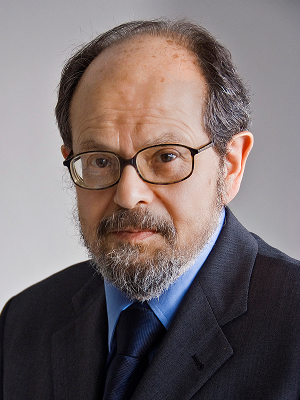
Often called the grandfather of climate skepticism. Richard Lindzen worked for many years as a professor of atmospheric science at the Massachusetts Institute of Technology (MIT). And now, he is a professor emeritus. Atmosphere has been his main field of study, and how it works, especially when it comes to circulation and climate.
For decades, it’s been in argument by Lindzen that the models of climate are not as reliable as its been claimed by many scientists. He has this belief that the scientists exaggerate future warming. And the reason for this is that they assume stronger feedback effects than what’s actually happening in nature.
Key Idea
The most famous idea is the “iris effect”, which suggests that the clouds in the tropics may act just like the iris of a human eye. Its opening lets more heat escape into the space at the time when the Earth gets warm. This is a helpful act in regulating the climate naturally, which makes the warming less dangerous.
Skeptical Claim
The climate sensitivity of Earth is much lower than most of the estimates, as argued by Lindzen. He says if the level of carbon dioxide doubles, it reaches 0.5–1°C of warming, while it’s around 3°C as per mainstream science.
Criticism
The iris test has been tested by many scientists, but did not had any strong results justifying Lindzen’s theory. By downplaying risks, the work has been under criticization. Thus, he is an important figure in the voices among the other climate skeptics.
Fred Singer – Atmospheric Physicist
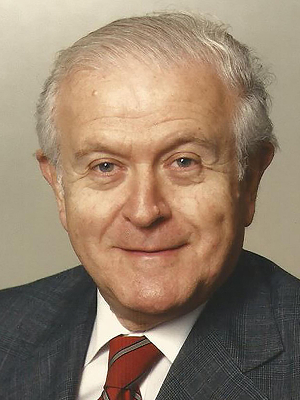
Another name in the world of climate skepticism is Fred Singer (1924–2020). He was an atmospheric physicist however with alternate and challenging views on the already present scientific evidences.
He spends the majority of his career questioning the mainstream science based on environmental issues. Singer founded the Science and Environmental Policy Project (SEPP).
Later, he helped create the NIPCC (Non-governmental International Panel on Climate Change), which acted as an alternative voice to the United Nations’ IPCC for his critiques and questions on climate change.
Key Idea
He claimed that the climate models are not reliable and often fail when matched with real-world data. Singer questioned about how much climate change was natural as compared to that caused by humans. He also suggested that the warming we experience daily may not be dangerous at all.
Criticism
Anyhow, he was a controversial figure, as the critics accused him of working with industries resisting regulation. It includes the tobacco industry at an early point in his career, and fossil fuels later. However, many of his views were disagreeable with, he was the most visible and local climate skeptic till the time of his passing. His legacy keeps him ranked among the top 10 scientists who disagree with climate change and challenge conventional thinking.
Willie Soon – Astrophysicist

As an astrophysicist, Dr. Willie worked for Astrophysics at the Harvard-Smithsonian Center. He is one of the controversial figures when it comes to climate debates.
Willie tended to argue for many years on the drivers of climate change, stating that the drivers may not include human activities being responsible for climate change.
He summed up his message in this way, “It’s the sun, not CO₂.”
Key Idea
Soon after, he believed that the variations in solar radiation are something that explains most of the warming patterns witnessed on our planet. The Medieval Warm Period is an example of the historical shift which he often points out. This seems clear evidence of the natural cycles being powerful enough in shaping the temperatures on a global level.
Funding Issues
After the reveal of his receiving more than $1.2 million from fossil fuel companies, Willie’s reputation took a hit. In many of his scientific papers, he failed to disclose these financial ties. This raises serious concerns regarding the conflict.
Related Pick: Impact of Deforestation on Climate Change
Criticism
The criticism he got from the mainstream scientists is that his studies only focus on the evidence that supports his solar theory and ignore the larger patterns. As also shown by the modern observation that the sun is responsible for climate, the current warming trends are not syncing with the solar activity. Eventually, his explanation was difficult to defend in the broader scientific community.
William Happer – Physicist (Princeton University)
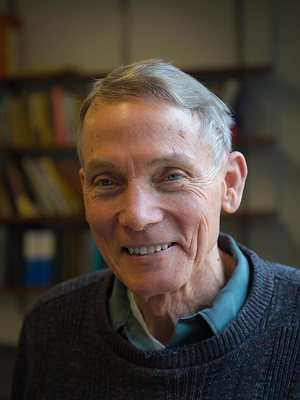
William Happer was a physicist and one of the most outspoken critics of mainstream climate science. According to him, carbon dioxide is a blessing rather than a pollutant.
He believed that CO₂ is essential for life. And the reason is that it improves crop fields, helps plants grow, and can even benefit global agriculture, in case the levels rise.
Key Idea
Going too far just to compare the criticism of CO₂ with unfair demonization in history. Happer, still controversially likening it to how Hitler targeted Jews. It was a kind of comparison that led to criticism and outrage.
Criticism
It’s factual that CO₂ supports plant growth, since many scientists point out that excessive amounts of it will drive dangerous climate change. The dangerous changes are like extreme weather, rising seas, and biodiversity loss. Although his scientific background is strong, there are many who say that Happer’s use of extreme historical analogies hurts his credibility.
Judith Curry – Climate Scientist (Georgia Tech)
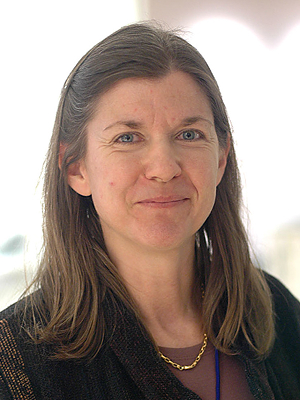
Considered to be one of the most balanced climate skeptics. Judith accepts that the Earth is warming and that humans do play a role.
However, she has a question on how much of the change is caused by humans and how reliable the predictions are in reality.
Key Idea
The strong focus is on uncertainty in climate models. She argues that changes in oceans and clouds might be playing a much bigger role than the suggested models.
Criticism
Curry stresses more on uncertainty, as said by mainstream scientists, which can mislead the public into underestimating the actual risks. Still, the reason for her influential voice is her background in the climate science community, instead of outside it. This credibility is what keeps her recognized among the top 10 scientists who disagree with climate change.
John Christy – Alabama State Climatologist
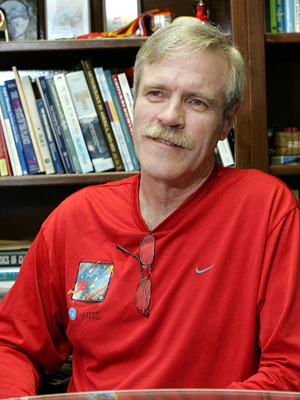
John Cristy used to work mainly with his colleague, Roy Spencer, who is famously known for the research he did on satellite temperature records.
Through his work, it showed that Earth is slowly warming compared to the suggested measurements of the surface. This is the thing that became a topic of argument for the skeptics.
Key Idea
John was the person who argued about the models predicting high warming. As per his views, the satellite shows very little rise in temperature when compared with ground-based records. It simply suggested that the models are overstating the problem.
Criticism
With the passage of time, other scientists found errors in the early adjusted satellite data. Once corrected, more warming was shown in the results than what Christy actually reported. Still, he remained the leading skeptical voice.
Vaclav Smil – Energy Scholar

Vaclav Smil is often labeled as a skeptic because of his views on energy transitions. He accepts that climate change is real and caused by human activity. But he is doubtful about the timelines, often promised by governments and activists.
Key Idea
He argued that moving the world away from fossil fuels is a huge task. As shown by history, energy transitions always take many decades. For Smil, the idea of achieving net-zero by 2050 is considerably unreal, given the world’s dependence on coal, oil, and gas.
Criticism
A few of the critics see Smil as too pessimistic and underestimate how fast technology can grow. Others find his approach refreshing because it highlights the scale of the challenge, while also fostering more honest conversations about what is truly possible. His work is respected even by people who disagree with his conclusions.
Chris Martz – Lukewarm Skeptic

A younger face, Chris Martz, in the debate on climate, but not like Lindzen or Curry. He became famous online and also in the media because of his outspoken points of view.
In the “lukewarm” skeptic camp, Mark places himself, which means that he is accepting the fact that humans are contributing to global warming. Perhaps, he still argues that often the world usually exaggerate its impact.
Key Idea
Solar variations and ocean changes are playing a role, as not admitted by many scientists, but Chris stresses these as natural climate cycles. He was also the one criticizing “climate hysteria”, which the mainstream media and activists have been pushing, fear-based messages.
Criticism
The critics somehow noticed that Martz lacked a strong background in peer-reviewed science. His work can be seen mostly in media appearances, commentary, and blogs instead of original research. However, it limits his credibility in the world of academics.
Myron Ebell – Policy Advocate

Not being a scientist, but still, Myron’s debate on climate change is impossible to ignore. He was a leading voice at the Competitive Enterprise Institute (CEI).
Ebell was someone who had a strong role in shaping the political conversation regarding climate change in the US.
Key Idea
He believed that climate change is exaggerated and that policies tend to cut emissions. Just like taxes or strict regulations are far more hurtful for economies than the climate itself. He stressed the importance of balancing the environmental issues with jobs, career, and affordable energy.
Influence
In 2016, when myron was appointed to Donald Trump’s Environmental Protection Agency (EPA) transition team, his political reach rose. Here, he pushed on, rolling back climate rules while weakening the EPA’s role in the regulation of emissions.
Criticism
The criticism he got was for his close connections with groups linking to fossil fuels, supporting his organization. There are many who argue about his funding sources as a weakening factor for his credibility, while raising questions about whether his skepticism was mainly on politics or science.
Bjorn Lomborg – Statistician & Author

In the traditional sense, Bjorn is not a scientist but a statistician and writer. Becoming one of the most visible critics of mainstream climate policies. The Skeptical Environmentalist was his well-known book, challenging many common ideas about environmental priorities.
He accepts that global warming is real and largely driven by humans. Arguing that it shouldn’t be treated as the world’s top emergency.
Key Idea
He was against the idea of excessive spending. Lomborg suggests that if you spend your money wisely on urgent issues, like health concerns and poverty, it would be beneficial. He views such investments as more immediate and life-saving when compared to costly climate policies, which take decades to show results.
Criticism
Lomborg’s cost-benefit approach was criticized by many economists/scientists. They believe that Bjorn’s approach minimizes the long-term dangers of climate change, which can be sea-level rise and extreme weather. They argue that delaying strong climate action could make the problem far more expensive to fix later. Still, Lomborg’s ideas remain influential in policy debates. And the reason is that his ideas focus on economics as much as science.
Conclusion
These skeptics are not proving that climate change is fake, but rather reminding us that science has its base on debate. There was strong criticism which is faced on many of their claims, including data mistakes or industry ties.
But what keeps the discussion in a more balanced way is hearing them out. The top 10 scientists who disagree with climate change highlight how minority voices, even when controversial, can shape debates and influence public opinion.
However, mainly the scientists are in favor of the fact of human-driven warming, whereas minority voices mustn’t be ignored. So, their arguments should be of equal importance by weighing them carefully against the evidence.
